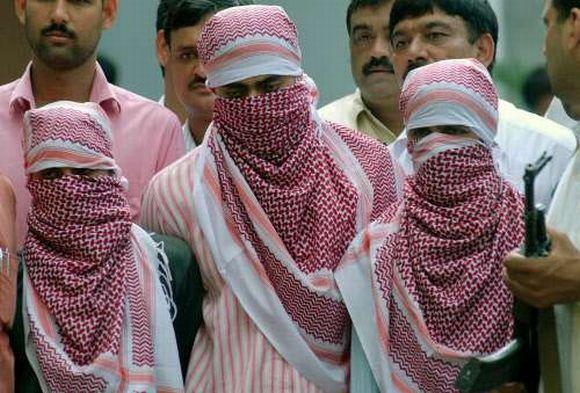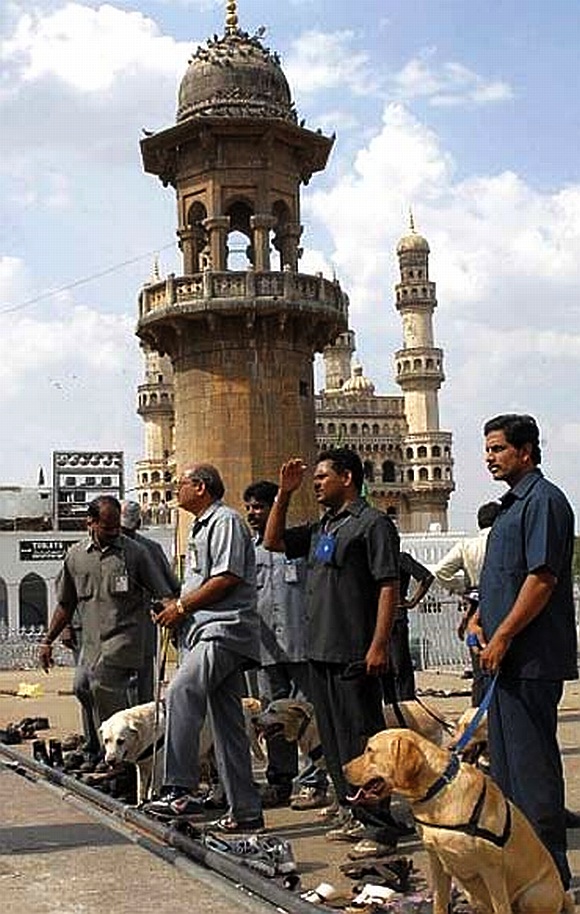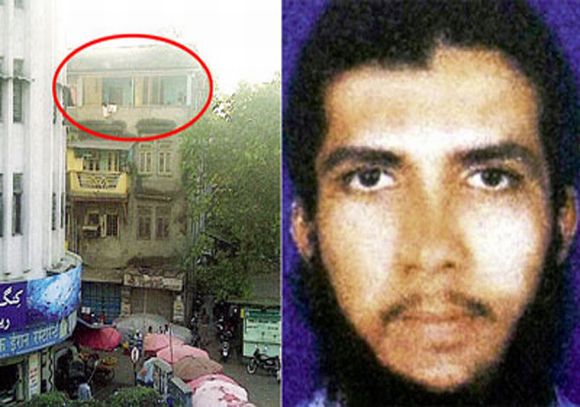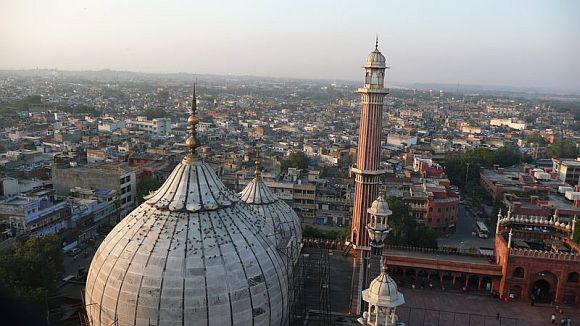
Police from every state have a different version to the working of the Indian Mujahideen, and we have seen arrests galore. On one hand, the police claim that they have cracked a particular case after a couple of arrests, but the matter never seems to reach the logical end when the battle for conviction is fought before the court. Vicky Nanjappa reports.
Looking at the various cases that are being handled by the police departments one could easily say that the conviction rate has been a zero and this is not a pretty picture that is being painted.
Look at the manner in which the events have unfolded in 2012. The year began with the Delhi police arresting four IM operatives, who according to them, had confessed that they had executed the Chinnaswamy Stadium blasts in Bangalore.
Then came another revelation that 13/7 blasts in Mumbai were executed by a module led by top IM operative Yaseen Bhatkal. Ironically this is not something that the Maharashtra Anti-Terrorism Squad agreed with and continues with their own probe into the case.
After this seven members of the IM were arrested in Tamil Nadu and it was claimed that Yaseen had managed to give them the slip. This was then followed by the arrest of Habib Phalai in Uttar Pradesh and he was made an accused in the 2008 Ahmedabad serial blasts case.
During these investigations the police claimed that the IM had planned on targetting various high profile institutions such as the Broadcast Audience Research Council and also the Defence Research and Development Organisation.
...

Two weeks later, the police claimed that two IM operatives -- Salman and Shahzad -- had confessed to their role in the September 13, 2008 Delhi serial blasts, and had procured explosives through Karnataka.
There were a few more arrests and these were in connection with the Bangalore serial blasts case and also the Ahmedabad blasts case. This was followed up by the arrests of Mohammad Anjuman in connection with the Jama Masjid case, Talha Abdali for being the founder member of the IM and Mohammad Kafeel for being a recruiter.
Today, the Maharashtra ATS which has carried out a couple of arrests claims that these youth were linked to the Gujarat blasts and had also planned on carrying out the assassinations of the three judges who delivered the verdict in the Ayodhya title suit case.
While these arrests look good on paper the question that one needs to ask if they have managed to solve the real problem of terrorism. There have been mixed reactions to these arrests.
Some have been genuine, and some, a case of mistake identity. The real battle, according to experts, will be won only when the police convert the arrests into convictions in courts.
The police were caught in a very embarrassing situation during the 2007 Mecca Masjid case when all the youth that they had apprehended were cleared by the court.
...

A senior police officer says that there are documents of proof in the court which are sought and more often than not, the police are unable to provide the same. Cases have started off on one theory, and as the years go by, the theory begins to change and by the time the matter reaches the court the prosecution has hardly a case on them.
A member of the prosecution too points out that more often than not the police only has a theory on them, and this is not good enough in the courts.
The police have found themselves searching for answers on the modus operandi and also the forensic evidence which they have not been able to prove before the court.
One problem is that they take too long to understand the case and by the time the arrests are carried out, most of the proof would have vanished. It has happened in all the recent cases of terrorism in India.
The problem begins with sharing of intelligence. We have been witness to the blame game many times which occurs post every terrorist attack. However, once the damage is done there is utter confusion and police teams have on most occasions not coordinated with each other.
Some feel that the introduction of an National Counter Terrorism Centre may actually do the job, as there is a dire need for terrorism probes to be more centralised in nature as it does not lead to any confusion.
...

Looking at the case of the IM one can see how the theories have been floated and also the manner in which a new version comes out with each arrest. In the past five years, we have seen at least five different masterminds of the outfit.
It started with Safdar Nagori who started the radical Students Islamic Movement of India which turned into the IM. Then came Riyaz Bhatkal, followed by Abdus Subhan. While Riyaz's name did the rounds for sometime, the police then said that the organisation was taken over by Iqbal Bhatkal.
However today the name on everyone's lips is Yaseen Bhatkal. Barring Nagori, the rest are all absconding and at the end of each probe the police take the name of the mastermind and wind up by stating that once he is arrested the case would attain a closure.
Have the police probed these incidents in a lazy manner or has the IM outwitted them? It could be a case of both.
...

Looking at the manner in which the police are investigating these cases, it is evident that they have not understood the modus operandi of the IM entirely. The IM too has surfaced in bits and pieces and has safeguarded their main persons with aliases such as Shah Rukh Khan which was used by three members.
In addition, the police are also faced with a major problem when one of these operatives leave the country immediately after an attack. Finding an IM member in Pakistan is as good as impossible and the probe comes to a standstill in such an event.
A senior official says that in order to bust such groups there is a dire need for immediate reaction.
"We need to seriously build up a thorough data base on such elements. A mere ban will not be enough and that comes more into play when these members are running in between countries," says the official.
"An outfit like the IM creates more of a problem from within the country, and hence our home security, coordination and intelligence sharing ought to be intact in order to convert the arrests into convictions," he says.